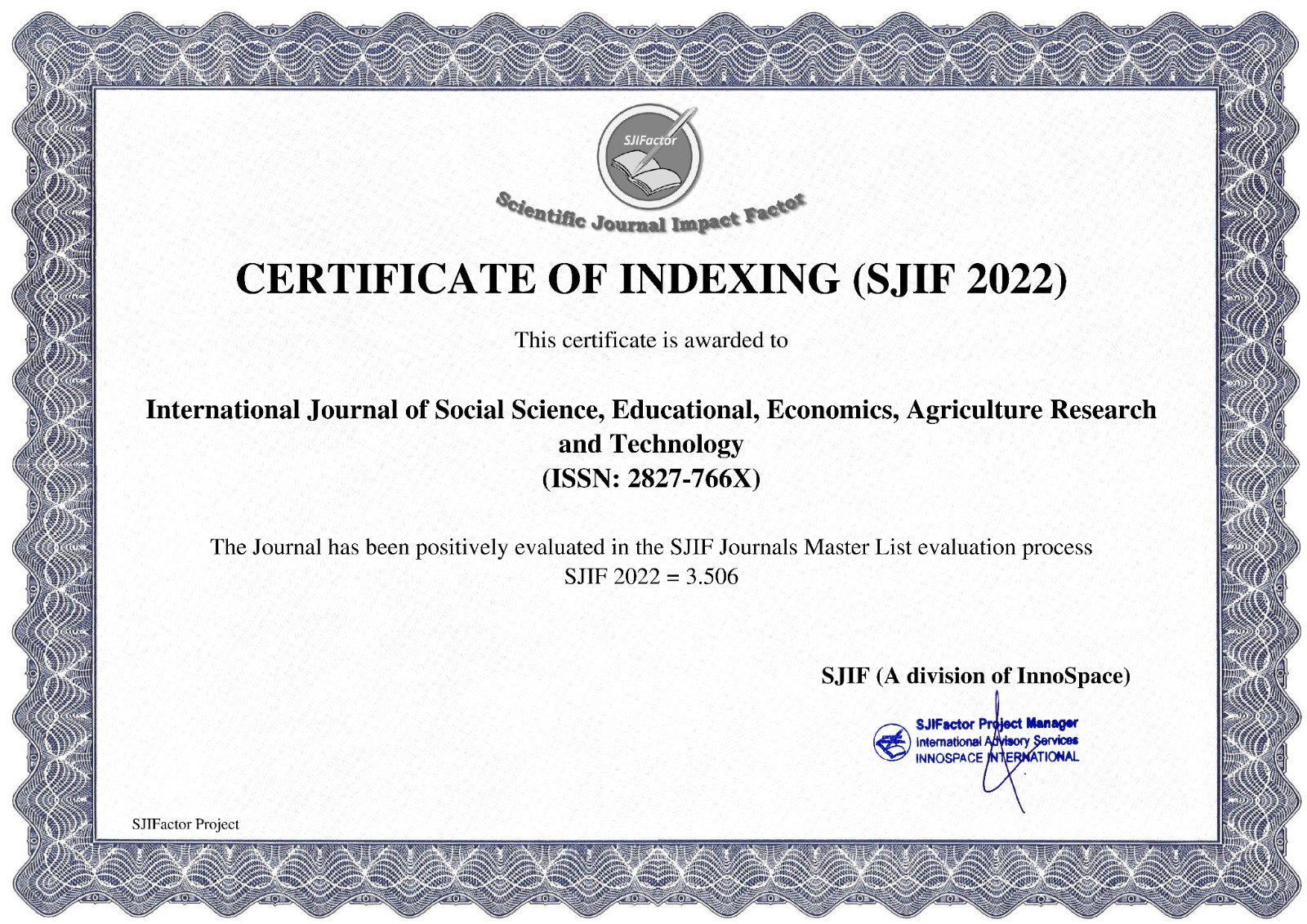EMPOWERING RURAL COMMUNITIES THROUGH BALANCED SCORECARD: PERFORMANCE EVALUATION OF AGRICULTURAL COOPERATIVES IN SLEMAN, YOGYAKARTA
Main Article Content
Pramesti Megayana
Annisa Firdauzi
Fatikhah Nurul Fajri
Cooperatives play a strategic role in rural economic development as well as in community empowerment. However, performance measurement of cooperatives in Indonesia has largely focused on financial indicators, which do not fully reflect their contribution to enhancing members’ capacity and well-being. This study aims to evaluate the performance of agricultural cooperatives in Sleman Regency, Yogyakarta, using the Balanced Scorecard (BSC) approach, which covers four perspectives: financial, member, internal business processes, and learning and growth. The research employed a descriptive quantitative method with a sample of 138 respondents consisting of members, managers, and employees of village unit cooperatives and agricultural cooperatives. Data were collected through questionnaires, interviews, and financial reports, and then analyzed using financial ratios, descriptive statistics, and Likert scales. The results show that from the financial perspective, the performance of both types of cooperatives remains weak, with liquidity, asset turnover, and profitability falling below standard levels. From the member perspective, cooperatives demonstrate 100% retention and high satisfaction levels (79.9% for village unit cooperatives and 77.3% for agricultural cooperatives), indicating that cooperative services meet members’ expectations. The internal process perspective reflects service innovations and operational efficiency, although challenges remain in fertilizer distribution and program outreach. The learning and growth perspective shows 100% manager retention, frequent training, and job satisfaction above 80%, which contribute to strengthening the cooperatives’ internal capacity. These findings highlight that although the financial aspect is still underperforming, cooperatives in Sleman play a vital role in empowering members through capacity building, business services, and institutional strengthening. The study recommends improving financial management, diversifying business activities, and expanding
Brigham, E. F., & Ehrhardt, M. C. (2016). Financial management: Theory & practice (15th ed.). Cengage Learning.
Hartati, S. (2023). Analisis kinerja keuangan koperasi dalam meningkatkan kesejahteraan anggota. Jurnal Manajemen Koperasi Indonesia, 11(2), 134–148.
Hendar. (2010). Manajemen koperasi. Rajawali Pers.
Hendrawati, E. (2017). Analisis kinerja koperasi dalam meningkatkan kesejahteraan anggota. Jurnal Ekonomi dan Bisnis, 20(2), 155–166.
Kaplan, R. S., & Norton, D. P. (1996). The balanced scorecard: Translating strategy into action. Harvard Business School Press.
Kaplan, R. S., & Norton, D. P. (2004). Strategy maps: Converting intangible assets into tangible outcomes. Harvard Business School Press.
Kotler, P., & Keller, K. L. (2016). Marketing management (15th ed.). Pearson.
Lestari, A., Widiyanti, S., & Pratama, R. (2022). Pemberdayaan anggota melalui partisipasi aktif dalam koperasi. Jurnal Pemberdayaan Masyarakat, 7(1), 55–70.
Harsela, Y, Yurisinthae, E., & Maswadi. (2022). Pemanfaatan Balanced Scorecard untuk penilaian kinerja koperasi pertanian. Daun: Jurnal Ilmiah Pertanian dan Kehutanan, 9(2), 171–182
Litviyah, L. (2019). Analisis efisiensi aset koperasi simpan pinjam. Jurnal Ilmu Ekonomi, 8(1), 45–57.
Purwono, H., & Hafidh, A. (2016). Tingkat retensi anggota sebagai indikator keberhasilan koperasi. Jurnal Koperasi dan UMKM, 12(2), 101–115.
Ratri, A., & Nindyantoro, A. (2004). Analisis kinerja koperasi simpan pinjam ditinjau dari perspektif balanced scorecard. Jurnal Ekonomi dan Manajemen Indonesia, 2(1), 45–58.
Supriyadi, A., & Pratiwi, D. (2021). Kinerja keuangan koperasi berbasis Balanced Scorecard. Jurnal Ekonomi & Bisnis Terapan, 17(1), 88–99.
Sumardjo. (2010). Pemberdayaan petani: Paradigma baru penyuluhan dan pembangunan pertanian. IPB Press.
Suryana. (2012). Kewirausahaan: Kiat dan proses menuju sukses. Salemba Empat.
Susilo, Y. S. (2013). Peran koperasi agribisnis dalam ketahanan pangan di Indonesia. Jurnal Agribisnis Indonesia, 1(1), 15–28.
Wahyudi, A., & Aini, Q. (2020). Analisis kinerja koperasi unit desa (KUD) dengan pendekatan Balanced Scorecard. Daun: Jurnal Ilmiah Pertanian dan Kehutanan, 7(2), 101–110.
Yuliani, N., & Hartati, S. (2023). Analisis leverage keuangan koperasi simpan pinjam di Indonesia. Jurnal Akuntansi dan Keuangan, 15(1), 25–39.






















